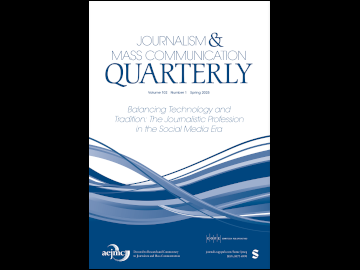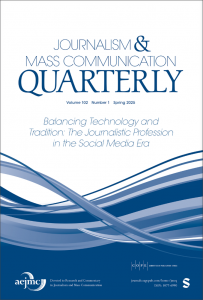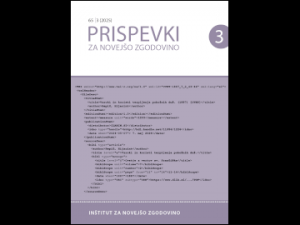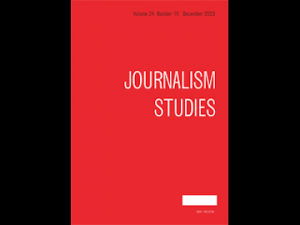Media Instrumentalization from Transition to Authoritarian Populism

 An article titled “From Transition to Authoritarian Populism: Historical Contingencies of Media Instrumentalization in Central and Eastern Europe” has been published in the journal Journalism & Mass Communication Quarterly, authored by Fanni Toth, Mojca Pajnik and Lana Zdravković.
An article titled “From Transition to Authoritarian Populism: Historical Contingencies of Media Instrumentalization in Central and Eastern Europe” has been published in the journal Journalism & Mass Communication Quarterly, authored by Fanni Toth, Mojca Pajnik and Lana Zdravković.
The study explores media instrumentalization in Central and Eastern Europe through the perceptions of journalists in Croatia, Hungary, and Slovenia. Using semi-structured interviews, the article adopts a historical perspective on the entanglement of political power and economic interests in shaping post-socialist media landscapes. The authors find that media systems across the three countries were particularly prone to authoritarian pressure during periods of governments with authoritarian tendencies. Therefore, apart from analyzing journalists’ experiences with instrumentalization over time, they pay special attention to experiences during key periods of authoritarian populism: in Hungary since Fidesz’s ascent to power in 2010; in Slovenia during Janša’s SDS governments of 2004–2008, 2012–2013, and 2020–2022; and in Croatia during the Sanader governments of 2003–2008 and 2008–2009. Across these cases, instrumentalization was marked by political capture of media, consolidation of ownership among loyalists, and financial pressures undermining journalistic autonomy. Findings reveal that media outlets, rather than functioning as independent watchdogs, were often repurposed as tools for political influence, especially in times of authoritarian rule. This environment intensified political polarization, weakened public trust, and contributed to the de-professionalization of journalism, posing serious challenges to the role of the media in sustaining democratic discourse.




